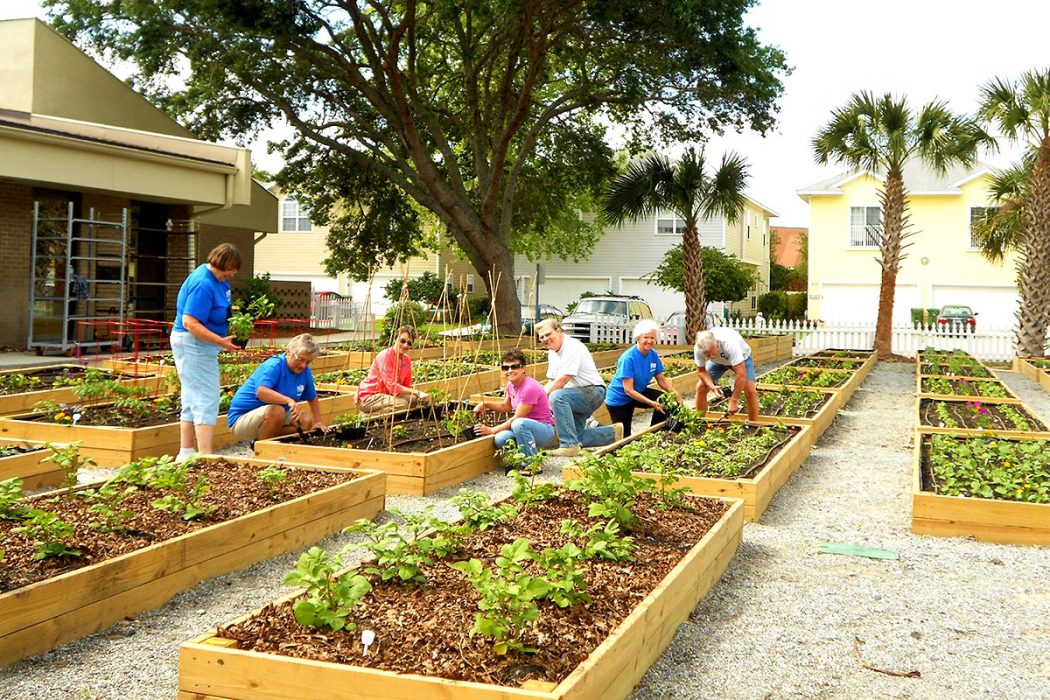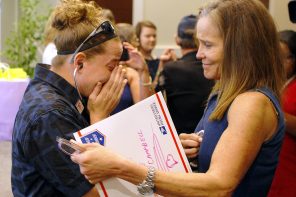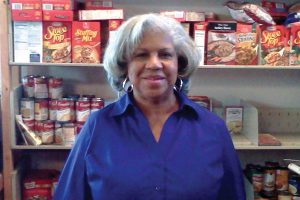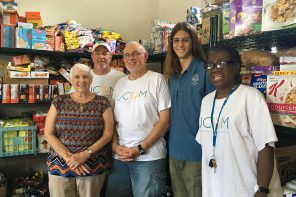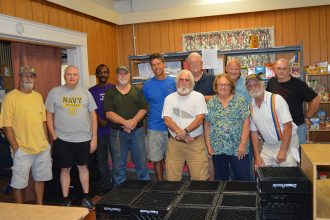Beaches Emergency Assistance Ministry (BEAM) envisions a future in which no resident of Jacksonville’s beach communities goes hungry or is haunted by fear of eviction. Since the nonprofit’s inception 32 years ago, it has expanded both in program and facilities to better make this vision a reality.
“There is a tremendous need to address critical issues affecting food access of our low-income residents,” said Betsy Fallon, BEAM interim executive director. “BEAM is a community-based 501(C)(3) nonprofit organization, which offers a comprehensive set of services that combine to move clients to self-sufficiency. It is safe to say that it is recognized by community leaders, families, and partners as the largest comprehensive agency in the beaches area providing services that help deserving neighbors in times of need.”
Founded in 1985 by several local churches, BEAM was created to “answer the large need for crisis help in Jacksonville’s beach communities,” said Fallon. The churches pooled their resources to form a nonprofit in order to prevent duplication of services and provide emergency financial assistance in a coordinated way to low-income residents of Mayport, Mayport Naval Station, Atlantic Beach, Neptune Beach, Jacksonville Beach, Ponte Vedra Beach, and those living immediately west of the Intercoastal Waterway between Atlantic and Beach Boulevards.
Most BEAM clients live in households at 125 percent of the poverty level. The majority – 93 percent – are families, typically with an unemployed single parent supporting at least two children. Other significant groups it serves include people with disabilities, grandparents raising grandchildren, and families of the active military. “In the beaches communities, the cost to stabilize a family facing possible homelessness continues to rise with escalating rents and higher utility bills in an economy where wage increases have not kept pace,” Fallon said.
The nonprofit’s services include two food pantries – in Jacksonville Beach and Mayport – which distribute more than 56,000 pounds or $95,000 of food each month. It also owns and manages a 6,500-square-foot organic garden, which annually produces more than 7,500 pounds of fresh, nutritious produce for its clients.
BEAM provides rent and utility assistance of approximately $250,000 per year to help more than 600 qualified families avoid eviction or utility disconnection. Through a partnership with Florida’s Department of Children and Families, BEAM assists approximately 1,700 clients with SNAP (food stamp program) and Medicaid assistance. Its Single Parent Project provides intensive case management services to help raise families out of poverty, and it hosts events such as a Thanksgiving food drive and Back-to-School with BEAM, where more than 1,000 children receive clothing, school supplies, and new backpacks.
Major growth in its food distribution capabilities was made possible by the Beaches Community Food Bank (BCFB), which opened in 2016. In 2014, BEAM and Beach Church in Jacksonville Beach led a coalition to secure the old post office on 3rd Street in Jacksonville Beach, renovating 3,000 square feet and securing funding to purchase a large refrigerator, freezer, fork lift, and other equipment.
“BEAM was selected to operate the food bank because of its excellent reputation and established relationships with area food retailers,” said Fallon, noting it distributes nearly 1 million pounds of food per year.
BEAM’s Paths to Wellness Program (P2W) started in January 2015 and provides on-going, no-cost educational assistance to clients about healthy eating from a registered dietitian.
“Over the last 10 years, the distribution of food has expanded significantly,” explained Fallon. “There was even more need for food assistance during the 2007-08 downturn, and growth has been steady since then. We continue to increase the amount of food we distribute each year.
“BEAM has greatly changed food distribution in our area. We can save more food from our local pickups from grocery stores with less travel time and faster distribution since we are located close to the agencies, churches, and communities in need,” she said. “We frequently find the same families needing to come to our food pantries every month. Because food insecurity is a chronic problem, BEAM has worked diligently on initiatives that take a comprehensive, holistic, and effective approach to address the complex issue of hunger.”
As of July 2017, 390,900 pounds has been distributed to local families, which is the equivalent of 670,130 pounds on an annual basis, she said.
Both BEAM food pantries utilize an innovative “client choice” model, where food can be selected in a mini-supermarket environment, allowing clients to choose the nutritious staples that best meet their needs instead of receiving a pre-packaged selection of foods.
“BEAM’s approach to addressing hunger in our community is unique. We know of no other initiative in our region which integrates the services of a registered dietitian with a comprehensive food pantry to serve its low-income residents,” Fallon said. “With this long-view approach, we aim to provide immediate relief for our neighbors suffering from hunger, and have a greater long-term impact on the complex issue of hunger in our community.”
Fallon estimates cash expenses for BEAM’s paid staff and food distribution at $200,000 per year. Not included in that figure are the thousands of hours of volunteer time and the value of food donated to the program.
BEAM receives its food from numerous grocery stores, food drives at various partner organizations such as churches, corporations, and businesses. It also receives supplies from Feeding Northeast Florida. What it requires most is shelf-stable food, such as canned goods during the months of July through September. “We have a greater need during this season for various reasons,” Fallon said, noting food insecure children are home during the summer and not able to receive lunch at school. The nonprofit also continuously seeks partners, donors, and volunteers, she said.
To help fund its increasing program costs, BEAM operates three thrift stores that carry everything from gently-used vintage and designer clothing to furniture and household items. “Our retail stores are not just a revenue source for our programs, but also a hub for communities to engage with our work and to be part of the solution to help lead families to self-sufficiency,” Fallon said.
This year BEAM instituted a new food distribution program at Mayport Elementary so families can receive free produce on early-release days.
Also new is the expansion of Paths to Wellness to cover the entire BEAM service area, giving special attention to Mayport.
In the future, if new funding is approved, BEAM plans to open a weekly Farmer’s Market in Mayport and increase clients’ understanding of good nutrition through diverse educational activities. It also hopes to reduce the risk of serious health conditions for low-income residents through Prescriptive Nutrition Therapy by providing counseling from a registered dietitian and increased food access from its pantries and organic garden as well as to train clients as Neighbors for Nutrition so they can promote healthy lifestyles in their community.

